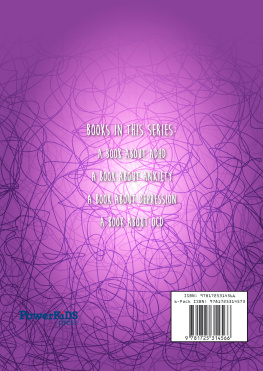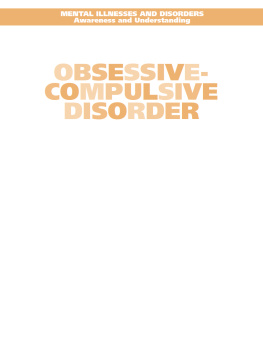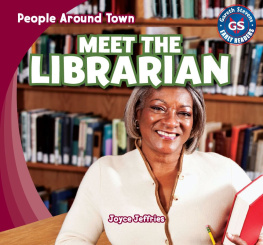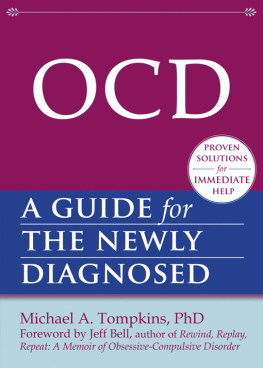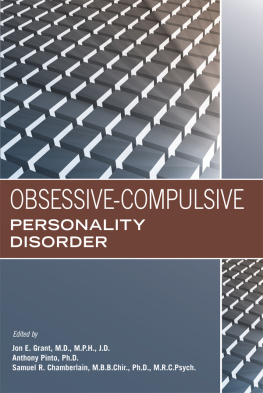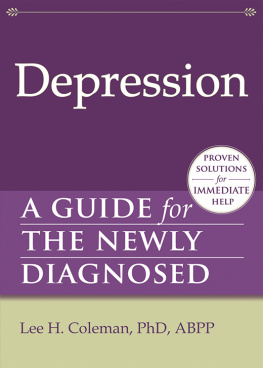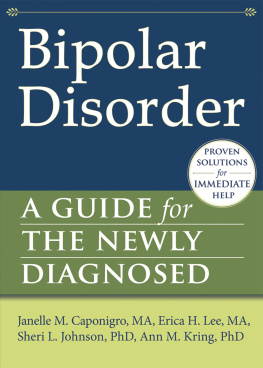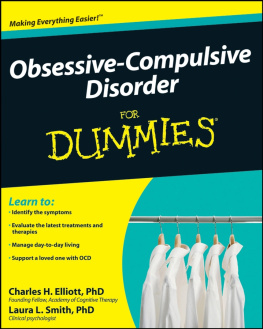
Published in 2020 by The Rosen
Publishing Group, Inc.
29 East 21st Street, New York, NY 10010
Cataloging-in-Publication Data
Names: Duhig, Holly.
Title: A book about anxiety / Holly Duhig.
Description: New York: PowerKids Press, 2020. | Series: Healthy minds
| Includes glossary and index.
Identifiers: ISBN 9781725314603 (pbk.) | ISBN 9781725314627 (library bound)
| ISBN 9781725314610 (6 pack)
Subjects: LCSH: Anxiety disorders--Juvenile literature.
Classification: LCC RC531.D84 2020 | DDC 616.8522--dc23
Copyright 2019 Booklife Publishing
This edition is published by arrangement with Booklife Publishing
Written by: Holly Duhig
Edited by: Kirsty Holmes
Designed by: Danielle Jones
PHOTOCREDITS
Front Cover Elena Elisseeva. , unless stated otherwise. With thanks to Getty Images, Thinkstock Photo and iStockphoto.
All rights reserved. No part of this book may be reproduced in any form without permission in writing from the publisher, except by a reviewer.
Manufactured in the United States of America
CPSIA Compliance Information: Batch #CW20PK: For Further Information contact Rosen Publishing,
New York, New York at 1-800-237-9932.
CONTENTS
Words that look like THIS are explained in the glossary on page .
WHAT IS OCD?
OCD stands for obsessive compulsive disorder and it is a type of anxiety disorder. Anxiety is the word we use to describe feelings of worry and fear. Everybody feels anxious from time to time, but people with an anxiety disorder like OCD find it hard to control feelings of anxiety and it stops them from doing the things they want to do.

IN EVERYDAY LANGUAGE, HAVING AN OBSESSION USUALLY MEANS BEING REALLY INTERESTED IN SOMETHING. FOR PEOPLE WITH OCD, AN OBSESSION IS A FEAR THAT TAKES UP A LOT OF THINKING TIME.
OCD has two main parts: obsessions, which are thoughts and fears that cause anxiety, and compulsions, which are the actions or that someone with OCD does in order to get rid of these thoughts and fears. If you have OCD, your brain finds it harder to let go of worries and fears. They might go around and around in your head for a very long time. This is why OCD thoughts get called obsessions. Compulsions can include things such as repeating words or movements, counting, checking, tapping, ordering, and cleaning.

Many people have worrying thoughts and do certain actions to try to make themselves feel better. For example, some people check that they have locked the front door many times when they leave their house. This doesnt always mean they have OCD. OCD obsessions and compulsions take up a lot of time, affect your day-to-day life, and make you more anxious in the long run.

AROUND 1 IN EVERY 100 CHILDREN HAS OCD. THAT MEANS THAT IF YOU HAVE OCD, THERES LIKELY SOMEONE ELSE IN YOUR SCHOOL THAT HAS IT, TOO.
OCD can be mild or , who will teach you ways to cope with your anxious thoughts and compulsions.
Some people even reach a point where they dont perform any compulsions anymore. Because OCD is an anxiety disorder, learning more about what anxiety is and how to deal with it can help people to cope with conditions like OCD.

OCD IS CONSIDERED A MENTAL HEALTH CONDITION BECAUSE IT IS A HEALTH CONDITION THAT AFFECTS THE MIND.
WHAT IS ANXIETY?
Anxiety is an emotion that makes us feel frightened or stressed. Sometimes it can be a helpful emotion. For example, if you are anxious about a test, it can motivate you to work hard and do well. However, too much anxiety might make you too scared to even take the test at all. This isnt helpful and it can make you feel very
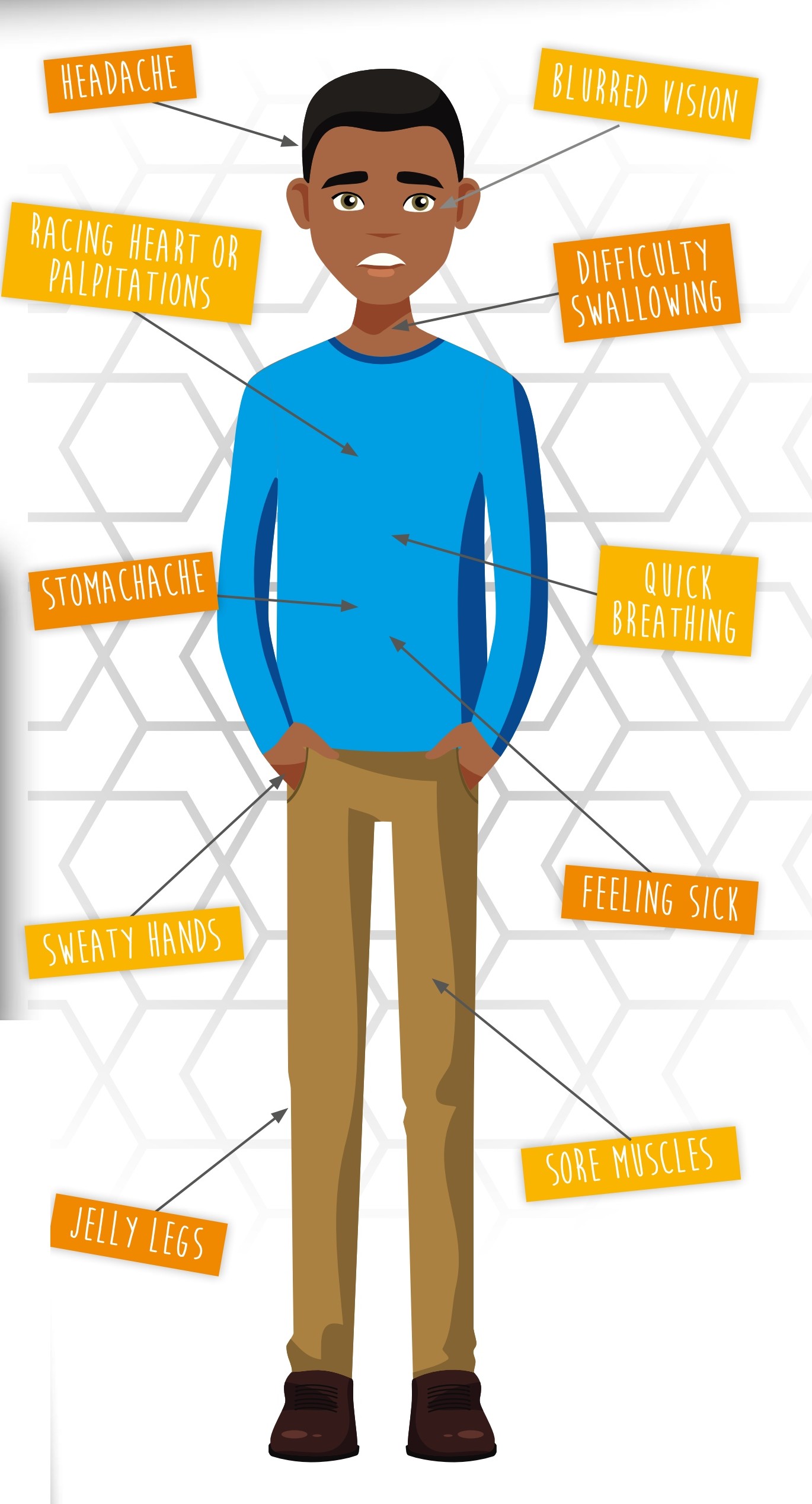
Think back to a time when you felt scared. You might have had a racing heart, shaky legs, or a stomachache. Maybe you felt very hot or a bit dizzy. You might even have felt like crying or shouting. These are all of anxiety that happen in our bodies. They are nothing to worry about and will go away once you feel calm again.
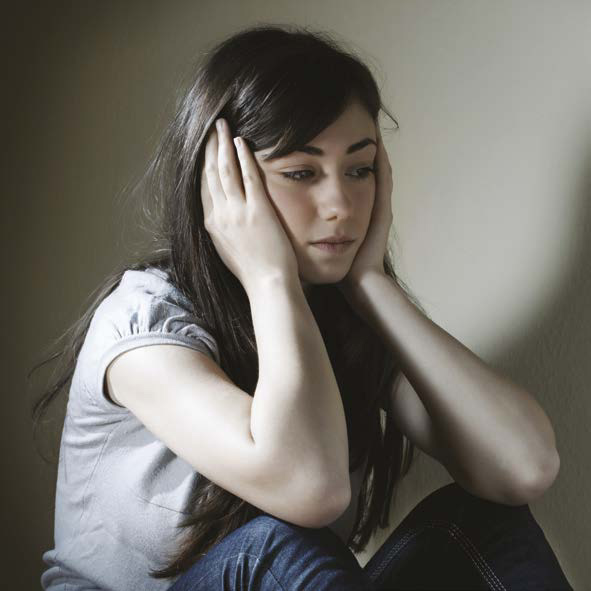
THE WORRY CYCLE
Sometimes these symptoms can spark a cycle of worry because they can make you believe that there is something wrong with you, or that you are unwell.
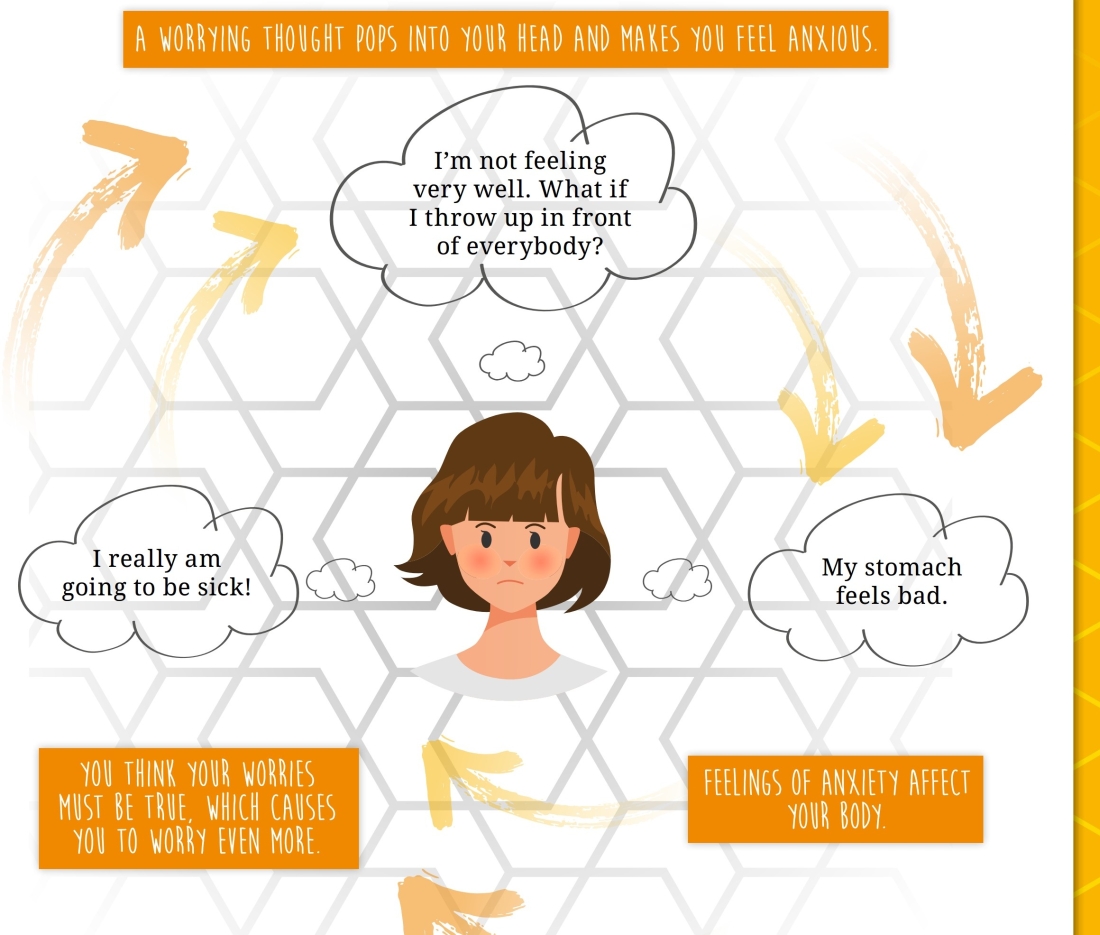
PANIC ATTACKS
Occasionally, a worry cycle can lead to something called a panic attack. A panic attack is a very intense feeling of anxiety that comes on all of a sudden. People who are experiencing a panic attack might:
Worry that they are going to die
Feel like shouting or crying
Feel out of control of their body
Panic attacks can be scary, but they cant hurt you and they only last for a short amount of time. Having someone sit with you and help you calm down can help stop a panic attack.
FIGHT, FLIGHT, FREEZE!
Panic and worry happen because of something called the fight, flight, freeze response. This is a full-body response to anxiety that helps give us the energy to face up to our fears (fight) or run away from them (flight). The third option, freeze, happens when we feel so overwhelmed that it feels like we are stuck.
The fight, flight, freeze response happens because of a whole system of messages being sent from your brain to your body.
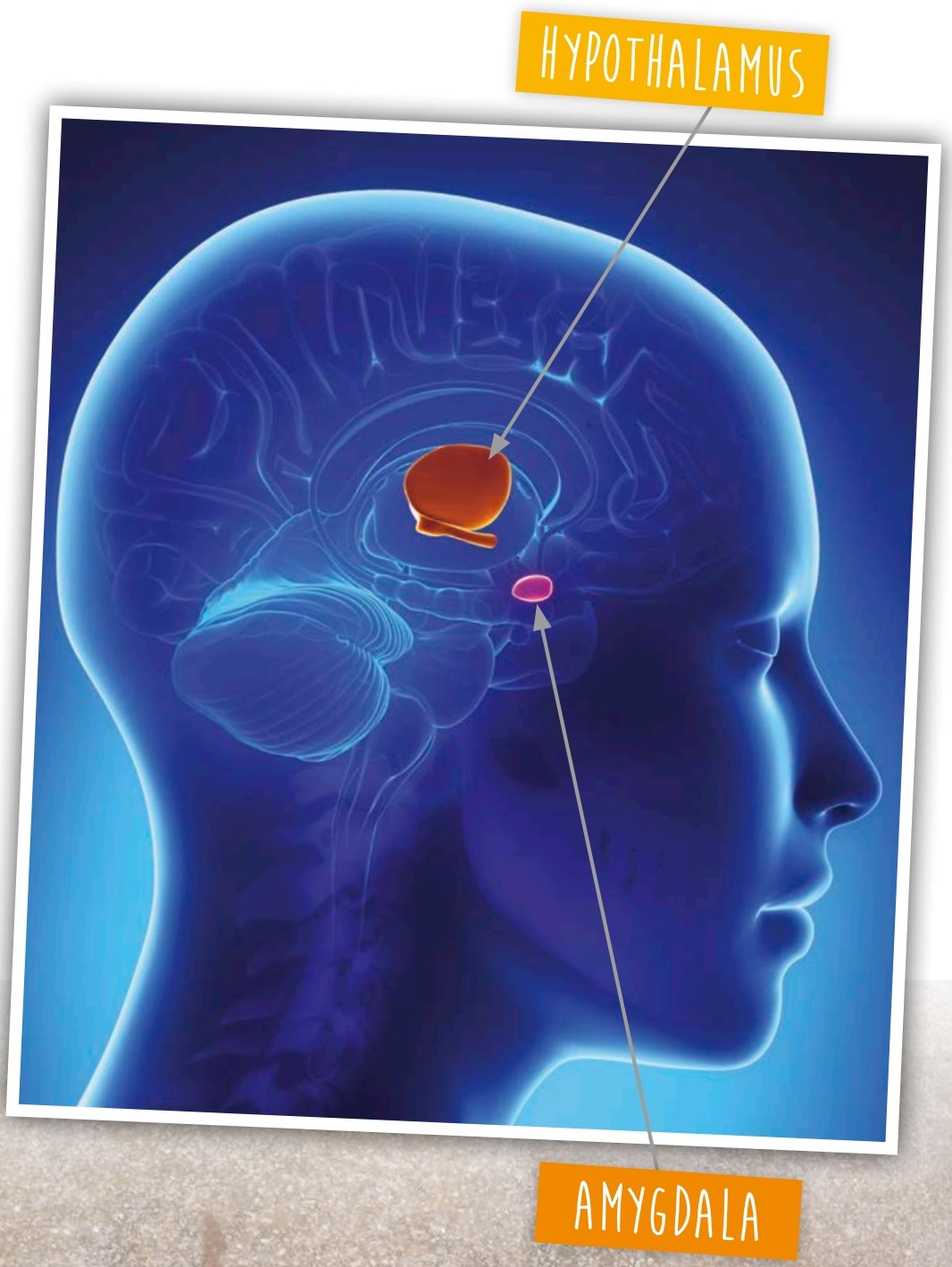
1. THE FIRST MESSENGER IS CALLED THE AMYGDALA (SAY: A-MIG-DUL-A). THIS PART OF YOUR BRAIN IS RESPONSIBLE FOR WARNING YOU ABOUT DANGER.
2 THE AMYGDALA TELLS ANOTHER PART OF YOUR BRAIN, CALLED THE HYPOTHALAMUS, ABOUT THE DANGER. THE HYPOTHALAMUS SENDS A MESSAGE TO YOUR BODY TO TELL IT TO RELEASE A HORMONE CALLED ADRENALINE (ALSO CALLED EPINEPHRINE).
3 ADRENALINE TELLS YOUR HEART TO BEAT FASTER AND YOUR LUNGS AND MUSCLES TO WORK HARDER.
SCIENTISTS THINK HUMANS EVOLVED THE FLIGHT, FIGHT, FREEZE RESPONSE BECAUSE, IN THE PAST, BEING ABLE TO FIGHT OR RUN AWAY FROM WILD ANIMALS HELPED OUR ANCESTORS TO SURVIVE.
The problem with the fight, flight, freeze response is that our worries arent always about things that we can fight or run away from. Often they are much more complicated than that. When we have no use for the energy that adrenaline gives us, it can make us feel very unpleasant and can cause some of the many physical symptoms of anxiety described on page 6.

Next page

